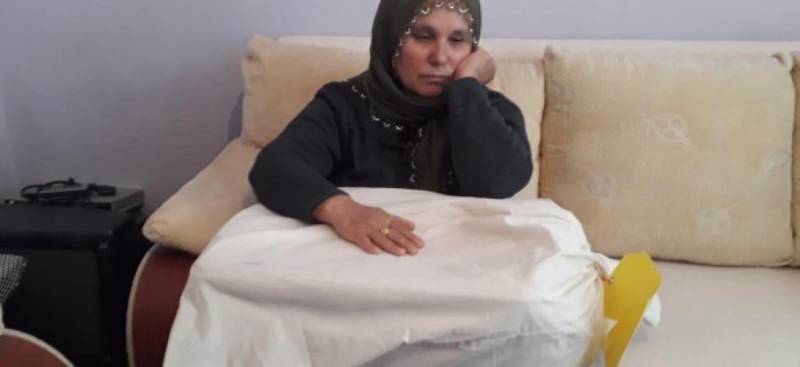“I saw the parcel with my Agit was there. So, I took the bones and went home,” Halime Aksoy, mother to the late Agit İpek, said to the Mezopotamya News Agency recently.
Like so many Kurdish families, Aksoy’s family had been mourning the loss of their loved one without their body. It wasn’t until this year that Agit İpek’s bones were finally given to his family, some three years after his death.
What is different about this family’s experience is that Turkish officials sent İpek’s remains in a small package via the state postal service – cash on delivery.
İpek, a member of the Kurdistan Workers’ Party (PKK), was killed during fighting with Turkish soldiers on May 23, 2017, in Dersim (Turkish name Tunceli) province, eastern Anatolia.
His family searched for his corpse for two years. Initially, officials told the family that there was no corpse. However, in May 2019 they called the family and told them that “the body was found.”
The family gave a blood sample for DNA testing in order to confirm that the corpse belonged to İpek. The forensic medicine institution delivered the body to the Diyarbakır Chief Prosecutor’s Office via cargo service, and then last month the family was summoned to the Diyarbakır courthouse where they received their son’s body in a cargo package.
Halime Aksoy is one of the many Kurdish mothers who have been looking for the bones of their children. In Kurdish towns and cities like Nusaybin, Cizre, Silopi, Diyarbakır, and Yüksekova, hundreds of families are looking for pieces of their children.
They would be happy if they could only find a few bones of their children so they can have a gravestone, a small stone that they can visit and cry at. On many gravestones in these Kurdish towns, there are only numbers – as many bodies were buried without being identified.
The Arslan family lost three of their children during the war. Hacer and Sait were killed in basements in Cizre in 2016. Muhammed was killed fighting in the mountains. Since 2016, they have been looking for the remains of their daughter Hacer. During my last visit to the family, their mother told me: “Months and years are passing; I still haven’t received a strand of Hacer’s hair. I am looking for just a strand, only one strand of hair.”
In the 1990s, thousands of Kurdish people were put into mass graves. Thirty years have passed, and we still don’t know the exact number of people who were killed and who lie in the mass graves. Their children grew up, and today are now looking for the bones of their parents.
One of them is a friend of mine, Yeşim İncedursun. She has been looking for her father’s bones for over 20 years. Five years ago, she returned from Germany to search for the bones of her father. She spoke with local villagers and tried to find the exact place to dig. With her sister, they began to dig an area on their own.
“There is no end to this soil that you are digging”, I said to Yeşim. She responded: “It is hard to live this way. For the past twenty years, not a day has gone by that we haven’t thought of our father. If we find his bones and lay him to rest in a nice place, he will rest in peace and we will rest easy. Can you imagine the happiness that we receive from the bones of our deceased? We will find so much happiness if we can find his bones.”
In a 2014 report by the Truth Justice Memory Centre human rights organisation, another Kurdish woman whose husband was a victim of the forced disappearances in Turkey in the 1990s said:
“Being able to hold their dead body, to hug them, is something else. It must be a special feeling, to hug their lifeless body, to send them on their last journey. (…) I think that having a grave must provide some closure, the sense of knowing they are resting here. Sharing your problems with them, letting it all out and crying at their grave for hours, these are all things we haven’t been able to experience. (…) In debates about the forced disappearances, sometimes people argue that they do not care what happens to them after they die, that it does not matter where they are laid to rest. But it does matter: it matters that their loved ones have a grave to visit. Those of us who lack that are left without closure.”
After Halime Aksoy received her son’s bones in that cargo package, parliamentarians from the pro-Kurdish People’s Democratic Party (HDP) protested this treatment and called it inhumane and a crime against humanity.
Cahit Özkan, vice-president of the ruling Justice and Development Party (AKP), responded by saying: “There is nothing inhumane. Inside the cargo package, there was not a corpse – it was only a few pieces of bone.”
This is the reality for Kurds in Turkey. Our bones are not considered human.
People often ask me: “What do Kurdish people really want?”
Sometimes we only want the bones of our children.
Only the bones.
